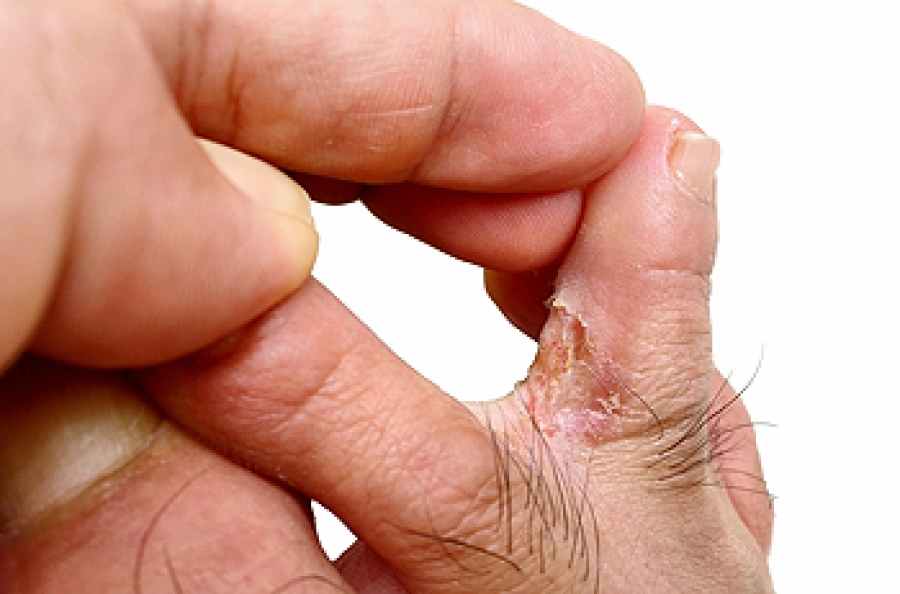Eczema and Ringworm: Causes and Risk Factors

Introduction
When it comes to skin issues, two conditions that often cause confusion are eczema and ringworm. Though they may seem similar because they both affect the skin, their causes, symptoms, and treatments differ significantly. Understanding these differences is essential, as it helps you manage them effectively. In this article, we will explore the causes and risk factors for both eczema and ringworm, helping you distinguish between the two and find the best treatment.
Understanding Eczema
What is Eczema?
Eczema, also known as atopic dermatitis, is a condition that causes the skin to become inflamed, red, and itchy. It can appear anywhere on the body, but it’s most common on the face, elbows, and knees. This condition is more than just a rash; it’s a chronic condition that requires long-term management.
Common Symptoms of Eczema
The most common symptoms of eczema include:
- Red, inflamed skin
- Itching, which can range from mild to severe
- Dry, cracked skin that may bleed
- Thickened skin due to constant scratching
Types of Eczema
There are several types of eczema, each with its unique features:
- Atopic Dermatitis: This is the most common type and typically begins in childhood. It’s often triggered by allergies.
- Contact Dermatitis: Caused by an allergic reaction to something that touches the skin, like certain soaps or chemicals.
- Dyshidrotic Eczema: This type is characterized by blisters on the palms of the hands and soles of the feet.
- Nummular Eczema: This type appears as round, coin-shaped spots on the skin.
Causes of Eczema
Eczema is not caused by one single factor but is believed to be the result of a combination of genetic and environmental factors.
- Genetic Factors: A family history of eczema, asthma, or hay fever can increase your risk of developing eczema.
- Environmental Triggers: These include allergens like pollen, pet dander, dust mites, and even harsh weather conditions.
Risk Factors for Eczema
The risk factors for eczema include:
- Family History: If your parents or siblings have eczema, asthma, or allergies, you may be more likely to develop the condition.
- Age and Skin Type: Eczema is common in infants and children, although adults can also develop it. People with dry, sensitive skin are more prone to eczema.
Understanding Ringworm
What is Ringworm?
Despite its name, ringworm is not caused by a worm but by a fungal infection. It appears as a red, circular rash with a ring-like appearance, and it can occur on any part of the body.
Symptoms of Ringworm
The main symptom of ringworm is the characteristic ring-shaped rash. It can also cause:
- Itching
- Red, scaly patches
- Blisters or pustules around the edges of the rash
How Ringworm Spreads
Ringworm is highly contagious and spreads through direct contact with an infected person, animal, or contaminated surfaces. It thrives in warm, moist environments, making public showers, swimming pools, and gym mats common places for infection.
Causes of Ringworm
Ringworm is caused by a fungal infection, typically by dermatophytes. These fungi thrive in moist and warm environments, which is why ringworm is common on the feet (athlete’s foot) and groin area (jock itch).
Risk Factors for Ringworm
Certain factors can increase your likelihood of getting ringworm, including:
- Contact with Infected People or Animals: Ringworm spreads through skin-to-skin contact or from pets.
- Poor Hygiene and Warm, Damp Environments: Fungi thrive in places like locker rooms, public showers, and damp clothing.
Eczema vs Ringworm: Key Differences
Differences in Appearance
Eczema and ringworm can look similar at first glance, especially since both cause red, irritated skin. However, ringworm is typically more defined and forms a circular shape, while eczema appears more irregular and can have dry, flaky patches.
Differences in Causes
The causes of eczema and ringworm are vastly different. Eczema is primarily due to genetic and environmental factors, while ringworm is caused by a fungal infection.
How They Are Diagnosed
A doctor will diagnose eczema based on its appearance and medical history. Ringworm can be diagnosed with a physical examination and confirmed with a skin culture or microscope examination of skin scrapings.
Treatment for Eczema
Over-the-Counter and Prescription Medications
For mild eczema, over-the-counter treatments like hydrocortisone creams can help reduce inflammation. For more severe cases, doctors may prescribe stronger medications, including topical steroids and immunosuppressants.
Role of Moisturizing Creams in Eczema Treatment
Moisturizing cream plays a crucial role in managing eczema. It helps to lock in moisture, keeping the skin hydrated and preventing flare-ups. Look for creams with ingredients like ceramides, which help restore the skin barrier.
Lifestyle Changes to Manage Eczema
Managing eczema also involves avoiding triggers, such as allergens or certain fabrics, and practicing good skin care habits like gentle cleansing and moisturizing.
Treatment for Ringworm
Antifungal Medications
Ringworm is treated with antifungal medications, which come in creams, powders, and pills. Over-the-counter options may be effective for mild cases, but severe infections may require prescription-strength treatments.
Natural Remedies for Ringworm
Some people turn to natural remedies like tea tree oil or apple cider vinegar to treat ringworm. However, these should be used with caution and under a doctor’s supervision.
The Importance of Maintaining Clean and Dry Skin
Since ringworm thrives in moist environments, keeping the affected area clean and dry is key to preventing its spread and promoting healing.
Prevention: How to Avoid Eczema and Ringworm
Preventing Eczema Flare-Ups
To prevent eczema flare-ups, avoid known triggers such as stress, harsh soaps, or allergens. Regularly applying a moisturizing cream can also help to keep the skin hydrated.
Preventing Ringworm Infections
To prevent ringworm, practice good hygiene by washing hands regularly and avoiding contact with infected individuals. Wearing clean, dry clothing and keeping your environment dry can also help prevent fungal growth.
Conclusion
Eczema and ringworm are two common skin conditions that can cause discomfort, but they have distinct causes, symptoms, and treatments. While eczema is a chronic inflammatory condition, ringworm is a fungal infection that is easily transmitted. By understanding the differences between these two conditions and knowing how to treat and prevent them, you can effectively manage your skin health.
FAQs
- What is the best treatment for eczema?
The best treatment for eczema typically includes moisturizing creams, anti-inflammatory medications like steroids, and avoiding triggers. - How long does it take for ringworm to heal?
With proper treatment, ringworm can heal within 2 to 4 weeks. However, more severe cases may take longer. - Can ringworm be spread by touch?
Yes, ringworm is highly contagious and can be spread through direct skin contact with an infected person or animal. - Is eczema contagious?
No, eczema is not contagious. It’s a genetic condition and cannot be passed from person to person. - Can moisturizing cream help with ringworm?
While moisturizing cream can help soothe eczema, it does not treat ringworm. Antifungal treatments are required to eliminate the infection.



